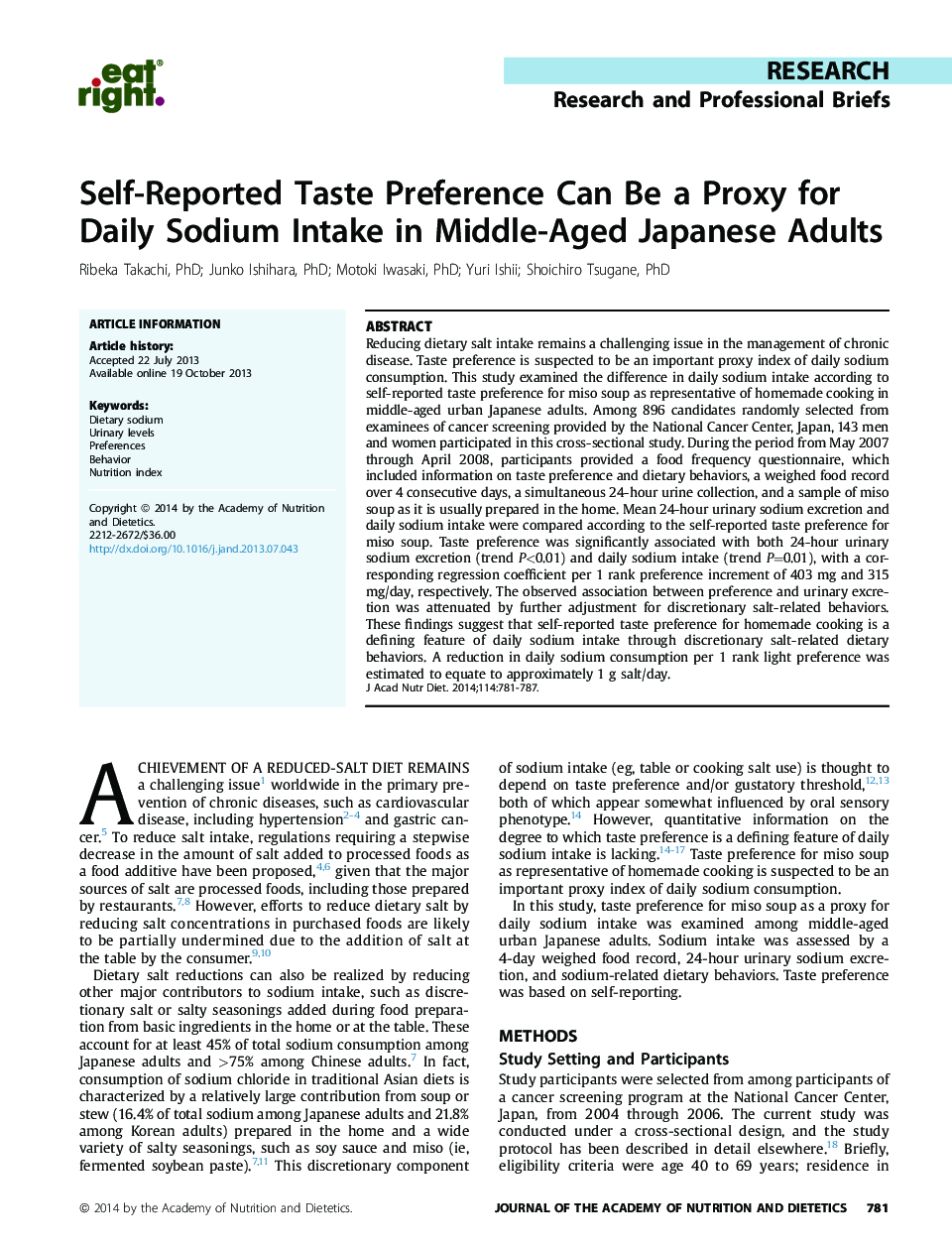| کد مقاله | کد نشریه | سال انتشار | مقاله انگلیسی | نسخه تمام متن |
|---|---|---|---|---|
| 2657006 | 1564065 | 2014 | 7 صفحه PDF | دانلود رایگان |
Reducing dietary salt intake remains a challenging issue in the management of chronic disease. Taste preference is suspected to be an important proxy index of daily sodium consumption. This study examined the difference in daily sodium intake according to self-reported taste preference for miso soup as representative of homemade cooking in middle-aged urban Japanese adults. Among 896 candidates randomly selected from examinees of cancer screening provided by the National Cancer Center, Japan, 143 men and women participated in this cross-sectional study. During the period from May 2007 through April 2008, participants provided a food frequency questionnaire, which included information on taste preference and dietary behaviors, a weighed food record over 4 consecutive days, a simultaneous 24-hour urine collection, and a sample of miso soup as it is usually prepared in the home. Mean 24-hour urinary sodium excretion and daily sodium intake were compared according to the self-reported taste preference for miso soup. Taste preference was significantly associated with both 24-hour urinary sodium excretion (trend P<0.01) and daily sodium intake (trend P=0.01), with a corresponding regression coefficient per 1 rank preference increment of 403 mg and 315 mg/day, respectively. The observed association between preference and urinary excretion was attenuated by further adjustment for discretionary salt-related behaviors. These findings suggest that self-reported taste preference for homemade cooking is a defining feature of daily sodium intake through discretionary salt-related dietary behaviors. A reduction in daily sodium consumption per 1 rank light preference was estimated to equate to approximately 1 g salt/day.
Journal: Journal of the Academy of Nutrition and Dietetics - Volume 114, Issue 5, May 2014, Pages 781–787
